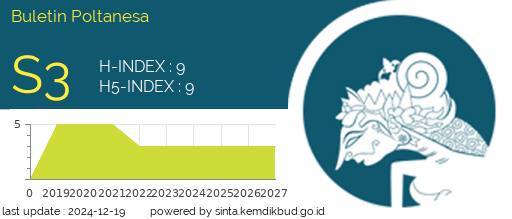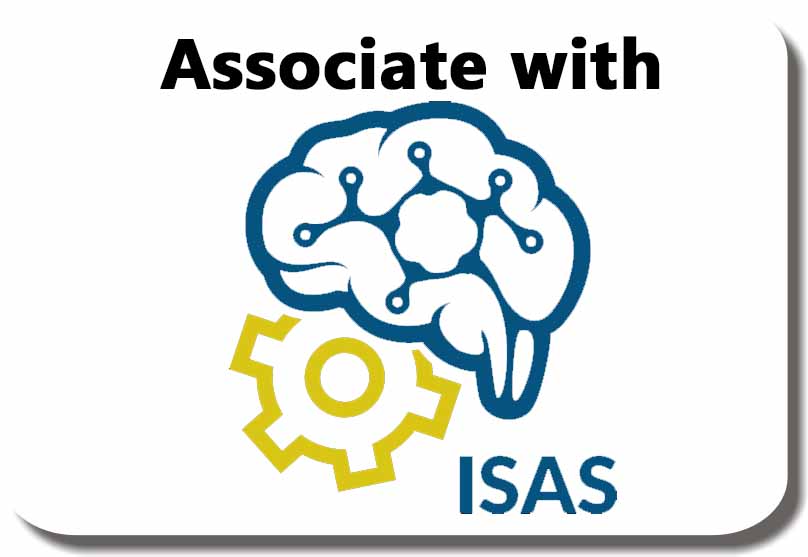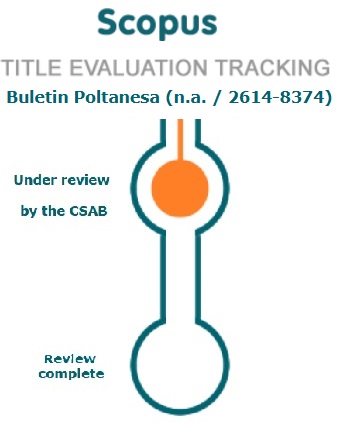PTEN: The Potential Therapeutic Target of Diabetes Mellitus
DOI:
https://doi.org/10.51967/tanesa.v24i1.2004Keywords:
Diabetes mellitus, Insulin Resistance, Blood Glucose, PTEN, PI3K/AktAbstract
Diabetes mellitus is a metabolic disease characterized by high blood glucose levels. The cause of glucose control failure is decreased insulin production by pancreatic β-cells and insulin resistance. Both lead to the obstacle of glucose uptake into cells. The mechanism of glucose uptake into cells is crucial in carbohydrate metabolism. This mechanism aims to produce energy in the form of ATP. The main signaling pathway after the process of glucose uptake is the PI3K/Akt pathway. This pathway involves many proteins activated by phosphorylation mechanisms. One of the proteins involved in this pathway is PTEN, a PI3K regulator. PTEN activity can dephosphorylate PI3K so that the insulin signaling pathway becomes blocked and glucose cannot be uptaken into cells. It causes blood glucose levels to increase. The role of PTEN in inhibiting the PI3K/Akt pathway seems to be a crucial matter to observe. By inhibiting PTEN activity, the insulin signaling pathway is expected to work properly. We have searched, read, analyzed, and summarized various studies regarding the potential of PTEN to reduce diabetes mellitus cases. In some research articles, the use of active compounds and therapy using stem cells to inhibit PTEN activity has shown good progress in the insulin signaling pathway. Based on these, it can be an option to make PTEN a target for diabetes mellitus therapy.
References
Berbudi, A., Rahmadika, N., Tjahjadi, A. I., & Ruslami, R. (2019). Type 2 Diabetes and its Impact on the Immune System. Current Diabetes Reviews, 16(5), 442–449. https://doi.org/10.2174/1573399815666191024085838
Chen, C. Y., Chen, J., He, L., & Stiles, B. L. (2018). PTEN: Tumor Suppressor and Metabolic Regulator. Frontiers in Endocrinology, 9(JUL), 1–12. https://doi.org/10.3389/fendo.2018.00338
Chen, G., Fan, X. Y., Zheng, X. P., Jin, Y. L., Liu, Y., & Liu, S. C. (2020). Human umbilical cord-derived mesenchymal stem cells ameliorate insulin resistance via PTEN-mediated crosstalk between the PI3K/Akt and Erk/MAPKs signaling pathways in the skeletal muscles of db/db mice. Stem Cell Research and Therapy, 11(1), 1–13. https://doi.org/10.1186/s13287-020-01865-7
Cheng, M., Guo, Y., Zhong, W., Chen, X., & Guo, G. (2022). Abnormal Expression of microRNA-296-3p in Type 2 Diabetes Patients and its Role in Pancreatic β-Cells Function by Targeting Tensin Homolog Deleted on Chromosome Ten. In Biochemical Genetics (Vol. 60, Issue 1, pp. 39–53). https://doi.org/10.1007/s10528-021-10083-6
El-Zeftawy, M., Ghareeb, D., ElBealy, E. R., Saad, R., Mahmoud, S., Elguindy, N., El-kott, A. F., & El-Sayed, M. (2019). Berberine chloride ameliorated PI3K/Akt‐p/SIRT‐1/PTEN signaling pathway in insulin resistance syndrome induced in rats. Journal of Food Biochemistry, 43, e13049.
Galicia-Garcia, U., Benito-Vicente, A., Jebari, S., Larrea-Sebal, A., Siddiqi, H., Uribe, K. B., Ostolaza, H., & Martín, C. (2020). Pathophysiology of type 2 diabetes mellitus. International Journal of Molecular Sciences, 21(17), 1–34. https://doi.org/10.3390/ijms21176275
Gao, J. R., Qin, X. J., Fang, Z. H., Li-Shan, Han, L. P., Hui-Jian, Guo, M. F., & Jiang, N. N. (2019). To explore the pathogenesis of vascular lesion of type 2 diabetes mellitus based on the PI3K/Akt signaling pathway. Journal of Diabetes Research, 2019. https://doi.org/10.1155/2019/4650906
Gong, L., Feng, D., Wang, T., Ren, Y., Liu, Y., & Wang, J. (2020). Inhibitors of α-amylase and α-glucosidase: Potential linkage for whole cereal foods on prevention of hyperglycemia. Food Science and Nutrition, 8(12), 1–18. https://doi.org/10.1002/fsn3.1987
Gu, X., Wang, X. Q., Lin, M. J., Liang, H., Fan, S. Y., Wang, L., Yan, X., Liu, W., & Shen, F. X. (2019). Molecular interplay between microRNA-130a and PTEN in palmitic acid-mediated impaired function of endothelial progenitor cells: Effects of metformin. International Journal of Molecular Medicine, 43(5), 2187–2198. https://doi.org/10.3892/ijmm.2019.4140
Hossain, U., Das, A. K., Ghosh, S., & Sil, P. C. (2020). An overview on the role of bioactive α-glucosidase inhibitors in ameliorating diabetic complications. Food and Chemical Toxicology, 145. https://doi.org/10.1016/j.fct.2020.111738
Hu, W., Song, X., Yu, H., Sun, J., & Zhao, Y. (2020). Therapeutic Potentials of Extracellular Vesicles for the Treatment of Diabetes and Diabetic Complications. International Journal of Molecular Sciences, 21(14), 1–24. https://doi.org/10.3390/ijms21145163
Khokhar, M., Roy, D., Modi, A., Agarwal, R., Yadav, D., Purohit, P., & Sharma, P. (2020). Perspectives on the role of PTEN in diabetic nephropathy: an update. Critical Reviews in Clinical Laboratory Sciences, 57(7), 470–483. https://doi.org/10.1080/10408363.2020.1746735
Kjos, I., Vestre, K., Guadagno, N. A., Borg Distefano, M., & Progida, C. (2018). Rab and Arf proteins at the crossroad between membrane transport and cytoskeleton dynamics. Biochimica et Biophysica Acta - Molecular Cell Research, 1865(10), 1397–1409. https://doi.org/10.1016/j.bbamcr.2018.07.009
Kushi, R., Hirota, Y., & Ogawa, W. (2021). Insulin resistance and exaggerated insulin sensitivity triggered by single-gene mutations in the insulin signaling pathway. Diabetology International, 12(1), 62–67. https://doi.org/10.1007/s13340-020-00455-5
Li, J., Qi, X., Wang, X., Li, W., Li, Y., & Zhou, Q. (2020). PTEN inhibition facilitates diabetic corneal epithelial regeneration by reactivating akt signaling pathway. Translational Vision Science and Technology, 9(3), 1–11. https://doi.org/10.1167/tvst.9.3.5
Li, Y. Z., Di Cristofano, A., & Woo, M. (2020). Metabolic Role of PTEN in Insulin Signaling and Resistance. Cold Spring Harbor Perspectives in Medicine, 10(8), 1–17. https://doi.org/10.1101/cshperspect.a036137
Maity, S., Das, F., Ghosh-Choudhury, N., Kasinath, B. S., & Ghosh Choudhury, G. (2019). High glucose increases miR-214 to power a feedback loop involving PTEN and the Akt/mTORC1 signaling axis. FEBS Letters, 593(16), 2261–2272. https://doi.org/10.1002/1873-3468.13505
McLoughlin, N. M., Mueller, C., & Grossmann, T. N. (2018). The Therapeutic Potential of PTEN Modulation: Targeting Strategies from Gene to Protein. Cell Chemical Biology, 25(1), 19–29. https://doi.org/10.1016/j.chembiol.2017.10.009
Oguntibeju, O. O. (2019). Type 2 diabetes mellitus, oxidative stress and inflammation: examining the links. International Journal of Physiology, Pathophysiology and Pharmacology, 11(3), 45–63. http://www.ncbi.nlm.nih.gov/pubmed/31333808%0Ahttp://www.pubmedcentral.nih.gov/articlerender.fcgi?artid=PMC6628012
Roden, M., & Shulman, G. I. (2019). The integrative biology of type 2 diabetes. Nature, 576(7785), 51–60. https://doi.org/10.1038/s41586-019-1797-8
Saltiel, A. R. (2021). Insulin signaling in health and disease. Journal of Clinical Investigation, 131(1), e142241. https://doi.org/10.1172/JCI142241
Wang, H., Feng, Z., Ie, J., Wen, F., Jv, M., Liang, T., Li, J., Wang, Y., Zuo, Y., Li, S., Li, R., Li, Z., Zhang, B., Liang, X., Liu, S., Shi, W., & Wang, W. (2018). Podocyte-specific knockin of PTEN protects kidney from hyperglycemia. American Journal of Physiology - Renal Physiology, 314(6), F1096–F1107. https://doi.org/10.1152/ajprenal.00575.2017
Xu, B., Li, Z., Zeng, T., Zhan, J., Wang, S., Ho, C. T., & Li, S. (2022). Bioactives of Momordica charantia as Potential Anti-Diabetic/Hypoglycemic Agents. Molecules, 27(7), 1–17. https://doi.org/10.3390/molecules27072175
Xue J, Gao J, Gu Y, Wang A, Yu S, Li B, Yin Y, Wang J, Su W, Zhang H, Ren W, Gu W, Lv Z, Mu Y, C. Y. (2022). Human umbilical cord-derived mesenchymal stem cells alleviate insulin resistance in diet-induced obese mice via an interaction with splenocytes. Stem Cell Res Ther, 13(1), 109. https://doi.org/10.1186/s13287-022-02791-6
Yin, L., Cai, W. J., Chang, X. Y., Li, J., Zhu, L. Y., Su, X. H., Yu, X. F., & Sun, K. (2018). Analysis of PTEN expression and promoter methylation in Uyghur patients with mild type 2 diabetes mellitus. Medicine (United States), 97(49), 1–9. https://doi.org/10.1097/MD.0000000000013513
Zhang, Z. Y., Miao, L. F., Qian, L. L., Wang, N., Qi, M. M., Zhang, Y. M., Dang, S. P., Wu, Y., & Wang, R. X. (2019). Molecular Mechanisms of Glucose Fluctuations on Diabetic Complications. Frontiers in Endocrinology, 10(September), 1–11. https://doi.org/10.3389/fendo.2019.00640
Downloads
Published
How to Cite
Issue
Section
License
The copyright of this article is transferred to Buletin Poltanesa and Politeknik Pertanian Negeri Samarinda, when the article is accepted for publication. the authors transfer all and all rights into and to paper including but not limited to all copyrights in the Buletin Poltanesa. The author represents and warrants that the original is the original and that he/she is the author of this paper unless the material is clearly identified as the original source, with notification of the permission of the copyright owner if necessary.
A Copyright permission is obtained for material published elsewhere and who require permission for this reproduction. Furthermore, I / We hereby transfer the unlimited publication rights of the above paper to Poltanesa. Copyright transfer includes exclusive rights to reproduce and distribute articles, including reprints, translations, photographic reproductions, microforms, electronic forms (offline, online), or other similar reproductions.
The author's mark is appropriate for and accepts responsibility for releasing this material on behalf of any and all coauthor. This Agreement shall be signed by at least one author who has obtained the consent of the co-author (s) if applicable. After the submission of this agreement is signed by the author concerned, the amendment of the author or in the order of the author listed shall not be accepted.









